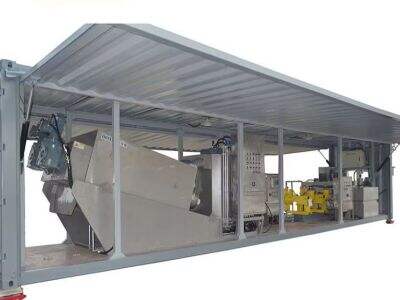Filtrimi i baltës dhe heqja e ujit nga baltës: A ka dallim?
Trajtimi i baltës mund të duket si një proces mjaft kompleks, por e dini çfarë? Pasi ta ndajmë në disa hapa, nuk është aq e vështirë ta kuptojmë idenë. Kanalizimi krijon baltë, e cila është një mbulesë e trashë baltë kur kalon nëpër një fabrikë të ujërave të zeza. Por ky baltë duhet të përpunohet para se të mund të heqet në mënyrë të sigurt ose të ripërdoret. Këtu janë proceset e trajtimit të baltës si sludge filter dhe çlirimi i baltës janë zgjidhje të pjesshme.
Bazat e proceseve fillestare të trajtimit të baltës
Ka filtra të baltës me të cilët mund të bëjmë lëng të ndarë nga grimcat e ngurta pasi të kalojë nëpër një rrjet. Ndërkohë, çlirimi i baltës e largon ujin nga baltë, duke e bërë më të lehtë trajtimin dhe heqin e saj.
Efikase dhe efektiviteti i filtrimit të baltës kundër shterimit të baltës
Në aspektin e efikasitetit, si filtri i baltës ashtu edhe dewatering e baltës janë të dobishme. Indikimi më i rëndësishëm i mashinë për filtrim të shtresës është për të pastruar ngrirës nga ky baltë që do të ndodhë në porosinë e një produkti të përtërirë përfundimtar shtesë. Sidoqoftë, ndërsa ky proces nuk ka potencialin për reduktimin e konsiderueshëm të vëllimit si djegia, është akoma më efektiv në uljen e vëllimit të baltës për të bërë transportin dhe heqjen e baltës më të lehtë dhe më pak të kushtueshme.
Filtri i sludgjit dhe çlirimi i sludgjit: Dy mënyra standarde për të përpunuar sludgjin.
Ka dallime të qarta në pajisjet dhe metodologjitë e përdorura midis filtrimit të baltës dhe sistemeve të dewatering. Sistemet tradicionale të filtrimit të baltës zakonisht përfshinin përdorimin e një shtypi filtrues ose një centrifuge për të izoluar fraksionet e lëngshme dhe të ngurta në lëng. Çlirimi i baltës është procesi i trashjes së baltës dhe zvogëlimit të vëllimit të saj duke hequr sa më shumë përmbajtje uji nga ajo sa të jetë e mundur, duke mbajtur ende hapësirë për një metodë të duhur të menaxhimit të ujërave të zeza si shtypjet e rripës ose shtypjet e visës
Krahasimi i kostove të përpunimit të mbeturinave në shkallë 3 dhe emetimeve për katër opsionet e menaxhimit të baltës
Në aspektin e kostos, sistemet e filtrimit të baltës janë zakonisht më të shtrenjta në fillim duke pasur parasysh pajisjet e përfshira. Sidoqoftë, ato mund të jenë më kosto-efektive në afat të gjatë në aspektin e kostove të funksionimit. Ndërsa sistemi i çlirimit të sludges nga ana tjetër kushton më pak me instalimin fillestar, por mund të kërkojë më shumë mirëmbajtje me kalimin e kohës. Tani, kompromisi është i zgjuar për mjedisin: Të dyja mënyrat kanë avantazhet dhe disavantazhet e tyre në këtë drejtim. Një sistem filtri i baltës mund të japë një produkt përfundimtar më të thatë, që do të thotë se do të duhet të hidhni më pak materiale. Në anën e keqe, largimit të ujës nga bleta sistemet mund të kushtojnë më shumë për të funksionuar në aspektin e energjisë së përdorur gjatë funksionimit.
Cili lloj trajtimi i baltës është më i mirë për ju?
Kur zgjidhni një strategji të përshtatshme për trajtimin e baltës në fabrikat tuaja të njohura, është e rëndësishme të merret parasysh faktorë kufizues të tillë si vëllimi i baltës së mbeturinave dhe kufizimet ligjore për mjedisin. Në fund të fundit, zgjedhja midis filtrave të baltës dhe dewatering-it të baltës do të vijë në kërkesat dhe preferencat tuaja unike.
Përmbajtja
- Bazat e proceseve fillestare të trajtimit të baltës
- Efikase dhe efektiviteti i filtrimit të baltës kundër shterimit të baltës
- Filtri i sludgjit dhe çlirimi i sludgjit: Dy mënyra standarde për të përpunuar sludgjin.
- Krahasimi i kostove të përpunimit të mbeturinave në shkallë 3 dhe emetimeve për katër opsionet e menaxhimit të baltës
- Cili lloj trajtimi i baltës është më i mirë për ju?

